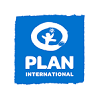MOMENTUM Country and Global Leadership (MCGL) is a five-year global project funded by the U.S. Agency for International Development (USAID) to provide targeted MNCH/FP/RH technical and capacity development assistance (TCDA) to countries to facilitate countries’ journeys to self-reliance. Being one of the six MOMENTUM suites of awards globally, MCGL contributes to global technical leadership and learning, and USAID’s policy dialogue for achievement of global MNCH/FP/RH goals through support to globally endorsed MNCH/FP/RH initiatives, strategies, frameworks, guidelines, and action plans. MCGL is the only Momentum award that has a strong emphasis on global leadership in addition to country level work. In Nigeria, MCGL addresses major contributors to maternal mortality and morbidity through the prevention and mitigation of the consequences of violence against women and girls (VAW/G) and possible drivers of child early and forced marriage (CEFM).
The project supports laws, policies, guidelines, and strategies that address four key technical priority areas: intimate partner violence (IPV), sexual violence (SV), child early and forced marriage (CEFM) and early adoption of family planning (FP) as well as stimulating communities with appropriate information and necessary knowledge to act in transforming discriminatory gender and social norms that continue to subordinate women. The technical approaches include formative assessment phase that utilizes the Social Norms Exploration Tool (SNET), Behaviorally Focused Applied Political Economy Analysis (BF-APEA) and Integrated Technical Organizational Capacity Assessment (ITOCA) to understand specific gaps within communities that will help inform the design of specific interventions through a co-creation process.
Scope/duration of Activity:
This is a 5-day training per state scheduled to take place in Sokoto and Ebonyi, preceded by a pre-planning meeting by the faculty.
Training Faculty:
Consultant to be supported by Capacity Development team (Snr/CD Specialists) and Technical Director. The AFP SMART Advocacy Facilitators Guide, and Overview of SMART Advocacy Training: A Guide to Quick Wins would be used as resource materials during the training.
Location:
The workshop will hold in designated locations in Sokoto and Ebonyi states respectively.
Amount Payable Per Day: N100,000
Responsibilities
To understand the detailed map of the legal and policy framework as it relates to IPV, SV, and CEFM at the national and state level, the consultant may want to carry out a review of the relevant policies and seek to understand the context or policy environment of both states, including key individuals and institutions that drive public policy in these locations.
Key duties and responsibilities will include the following:
- Participate in an inception meeting with the project team to determine the final scope.
- Develop workshop agenda, sessions and content for the training using the SMART Advocacy facilitators guide.
- Develop a template for Policy Brief for use in the two states
- Facilitate the training workshop and guide the development of draft advocacy briefs
- Support the finalization of the advocacy briefs
- Submit a final workshop report, including clean copies of the advocacy brief
Required Qualifications
- Demonstrated experience in advocacy drives, engaging with policy analysis and/or politically complex issues in Nigeria
- Demonstrated experience facilitating similar trainings
- Strong English writing capabilities and interpersonal skills
- Willingness to consult with and accept feedback from project team members
- Willingness to travel to and carry out consultancy assignments within Nigeria
Preferred Qualifications
- Experience related to IPV, SV, CEFM, GBV, or related policy areas
- Experience working in Ebonyi and/or Sokoto states, including knowledge of relevant political and policy making structures & processes
- Familiar with the SMART advocacy approach
Jhpiego offers competitive salaries and a comprehensive employee benefits package.
Applicants must submit a single document for upload to include: cover letter, resume, and references.
We reserve the right to close this vacancy early if a suitable candidate is found
Only shortlisted candidates will receive an invitation for an interview
For further information about Jhpiego, visit our website at www.jhpiego.org
Note: The successful candidate selected for this position will be subject to a pre-employment background investigation.
Jhpiego is an Affirmative Action/Equal Opportunity Employer
Jhpiego, a Johns Hopkins University affiliate, is an equal opportunity employer and does not discriminate on the basis of gender, marital status, pregnancy, race, color, ethnicity, national origin, age, disability, religion, sexual orientation, gender identity or expression, veteran status, other legally protected characteristics or any other occupationally irrelevant criteria. Jhpiego promotes Affirmative Action for minorities, women, individuals who are disabled, and veterans.
EEO is the law
#LI-MO1



